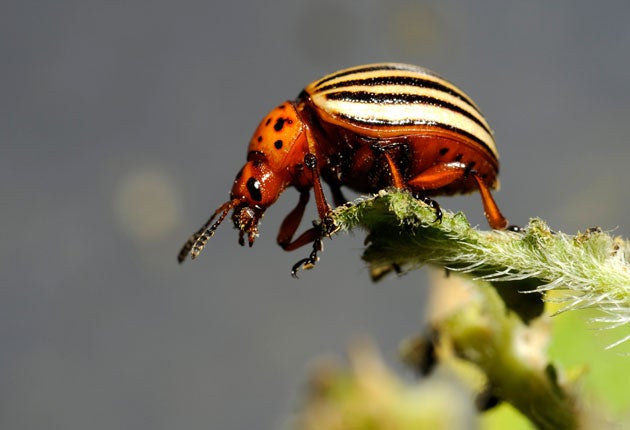National Insect Week: The power of bugs
Scientists warn that the UK's dramatic loss of expertise in the field poses a threat to our environment and health

They are among the planet's smallest creatures, yet they have the power to change the world. Insects can be man's greatest friends, pollinating our crops, and also our greatest enemy, spreading disease and killing millions worldwide. Now scientists are warning that Britain's once world-beating pool of expertise on the subject is draining away, leaving us vulnerable to new and ever more dangerous insect pests.
The Royal Entomological Society, the oldest in the world in its field, warned this weekend that a decline in the UK's scientific study of insects poses a substantial threat to our ecosystems, food security and even our health. The warning comes as National Insect Week begins tomorrow.
Once a world leader in the field, in the 1970s the UK produced 70 to 80 graduate entomologists annually. Now it produces a handful each year. Imperial College London is the last place teaching the subject, and that at postgraduate level only.
Experts bemoan the passing of a time when entomology boasted champions such as Charles Darwin and the novelist/lepidopterist Vladimir Nabokov, who, in turn, inspired younger generations. They blame the school system for not capitalising on children's early interest in bugs and what they say is fashionable disapproval of collecting insects, once a rite of passage for millions of schoolchildren.
Simon Leather, of Imperial College, said: "Insects are the major animal life form – 75 per cent of described animal species are insects. Nobody knows very much about insects and invertebrates, yet they are incredibly important: they help run all the ecosystems, they provide food for lots of animals, they live in the soil, turning lots of things over. Yet much of the research money goes into mammals, where a new species is rarely discovered."
British scientists are increasingly worried that, as global temperatures rise, a wave of new, possibly disease-carrying insects will invade Britain and experts will not know enough to control them. "What could happen is that climate change could allow the establishment of the diseases that they transmit and the insects may survive through mild winters," Dr Leather said.
Join our commenting forum
Join thought-provoking conversations, follow other Independent readers and see their replies
Comments
Bookmark popover
Removed from bookmarks